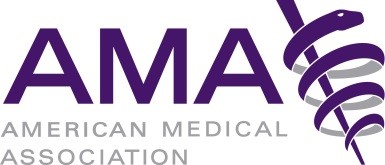Michael Chuong, M.D.
June 22, 2023 – Miami Cancer Institute, a part of Baptist Health, has seen significant benefits of using ablative radiotherapy using the MRIdian guided radiation device to treat inoperable pancreatic cancer. As one of the highest accruing centers to the first-of-its-kind international phase II SMART trial, researchers at Miami Cancer Institute are hopeful these results are indicating safe and effective radiation, to eradicate pancreatic cancer overall.
The MRIdian enables high ablative radiation doses ― doses high enough to completely eradicate tumors ― to be precisely delivered in as few as one to five outpatient sessions. The same high-dose regimen delivered on traditional radiation devices using CT scans for targeting has previously been deemed unsafe in prior clinical trials and therefore lower non-ablative radiation dose is currently the standard of care for inoperable pancreas cancer, which improves safety but at the expense of treatment efficacy.
“The primary objective of the SMART trial was to demonstrate that delivering ablative radiation doses to inoperable pancreas cancer with MRIdian does not cause an unacceptably high rate of severe gastrointestinal (GI) side effects,” said co-principal investigator Michael Chuong, M.D., the lead physician for the MRI-guided radiation program and medical director of Miami Cancer Institute’s Department of Radiation Oncology. “We are thrilled that this was a positive trial and that no patient had severe GI toxicity definitely related to radiation therapy. Treatment was exceptionally well-tolerated, despite the high dose, which was made possible by the advanced features of MRIdian. It was also encouraging that patients themselves reported that radiation therapy did not negatively impact their quality of life despite the exceptionally high tumor dose.”
In 2018, Miami Cancer Institute was the second center in the U.S. to treat patients with the MRIdian Linac, the first FDA-approved MR-guided radiation therapy system. Since then, the Institute has become one of the most experienced centers treating inoperable pancreas cancer and other challenging cancers with this advanced device. In addition, the Institute has also become a leader in research aimed at defining novel clinical indications and best treatment techniques for MRIdian, influencing practice around the world. Lynn Cancer Institute at Boca Raton Regional Hospital, part of Baptist Health, is also now treating cancer patients with the same MR-guided radiation therapy system.
To explore Baptist Health clinical trials open for pancreatic cancer, visit here.
About Miami Cancer Institute
Miami Cancer Institute brings to South Florida access to personalized clinical treatments and comprehensive support services delivered with unparalleled compassion. No other cancer program in the region has the combination of cancer-fighting expertise and advanced technology—including the first proton therapy center in South Florida, Latin America and the Caribbean, and one of the only radiation oncology programs in the world with each of the newest radiation therapies in one place—to diagnose and deliver precise cancer treatments that achieve the best outcomes and improve the lives of cancer patients. The Institute offers an impressive roster of established community oncologists and renowned experts, clinical researchers and genomic scientists recruited from the nation’s top cancer centers. Selected as Florida’s only member of the Memorial Sloan Kettering Cancer (MSK) Alliance, Miami Cancer Institute is part of a meaningful clinical collaboration that affords patients in South Florida access to innovative treatments and ensures that the standards of care developed by their multidisciplinary disease management teams match those at MSK. For more information, please visithttps://cancer.baptisthealth.net/miami-cancer-institute.
Miami Cancer Institute is part of Baptist Health Cancer Care, the largest cancer program in South Florida, with locations from the Florida Keys to the Palm Beaches.



























